Without realizing the power of the staircase, millions of people pass by this potential complete gym every day. Offering innovative options for cardiorespiratory, strength/endurance, flexibility and balance gains for injury-free movers, the staircase offers many unique options to make a case for avoiding the elevator or escalator all together.
Following is a list of ideas that may give you a new vision on the stairs that you pass every day, either as separate moves or as an integrated 15-minute workout. Note: For any specific joint issues, please adapt as prudent for your individual needs, including skipping any particular movement sequence.
Each of these cardiorespiratory skills and drills involve moving from the bottom to the top of the stairs. At the top, turn around and walk down to the starting point as quickly and safely as possible and then repeat the entire sequence for a period of three to five minutes.
Cardiorespiratory
1. Two Forward, One Back
Set-up: At the bottom of the stairs, facing up
Execution: At a comfortably challenging pace, walk or run the right foot and then the left foot to the first step. Repeat with the right and left foot to the next step. Moving backward, move down one step with the right foot and then the left foot. Repeat this format of “two-up, one down” to the top of the stairs.
2. Two-by-Two
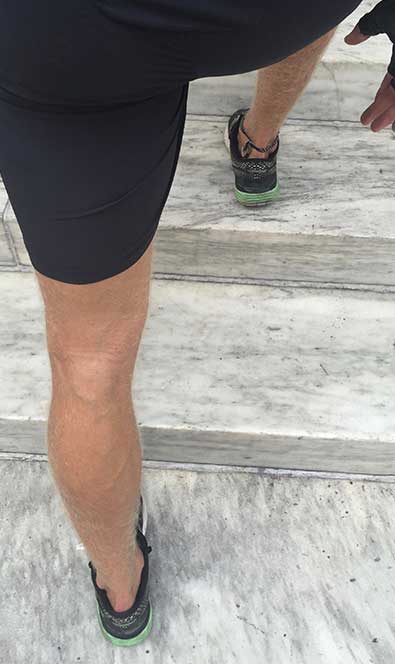
Set-up: At the bottom of the stairs, facing up
Execution: At a comfortably challenging pace, walk-run up the stairs, moving up two stairs at a time. When you reach the top, turn around and walk down the stairs normally. Repeat as able for three to five minutes.
3. Opening Ice Skating
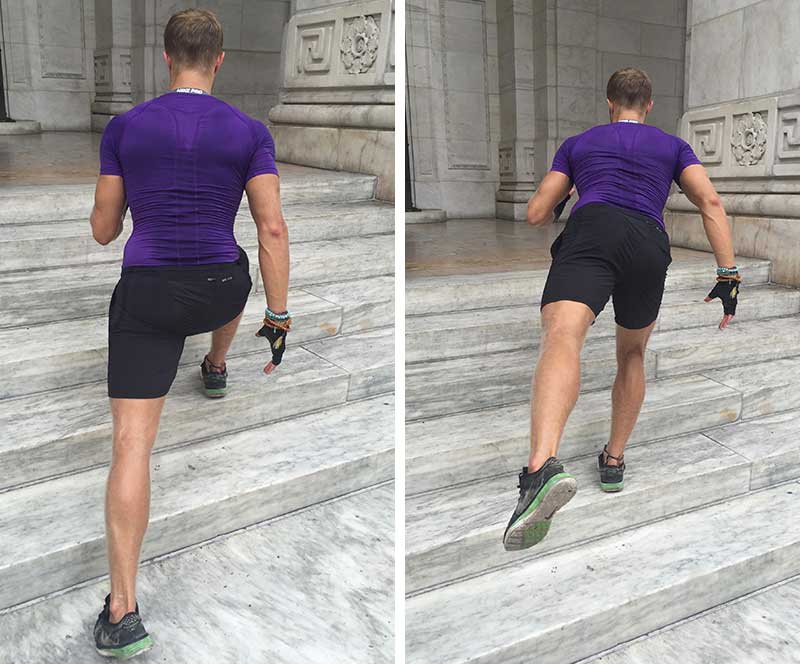
Set-up: At the bottom center of the stairs, facing up
Execution: Step the right foot to the first or second step as far to the right as possible. Step the left foot to the second or third step as far left as possible. Continue to the top in the same “ice skating” movement, weaving the body to the right and left on the ascent.
4. Closing Ice Skating
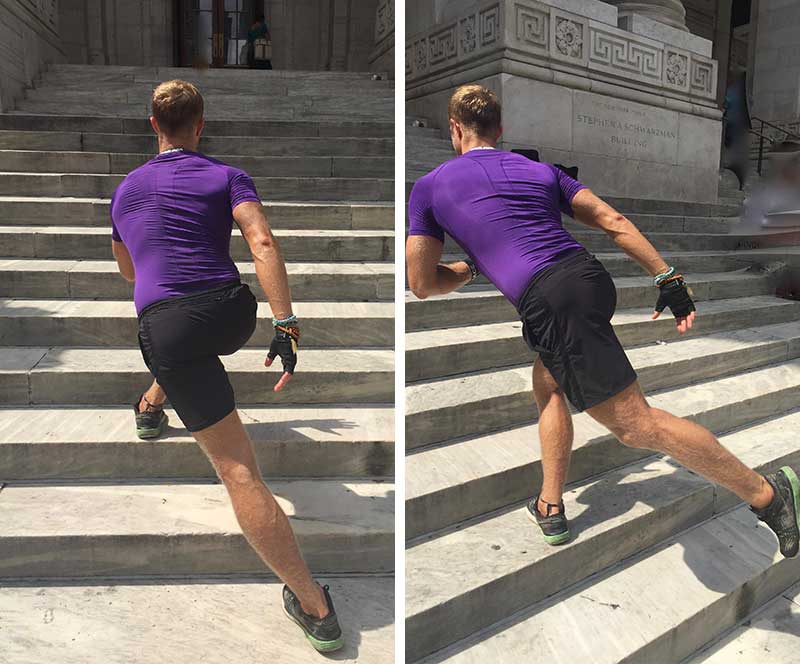
Set-up: At the bottom center of the stairs, facing up
Execution: Step the right foot to the first or second step as far to the left as possible, crossing the midline of the body. Step the left foot to the second or third step as far right as possible. Continue to the top in the same “ice skating” way, weaving the body to the right and left on the ascent.
Strength/Endurance
The first three strength/endurance skills and drills involves moving from the bottom to the top of the stairs. At the top, turn around and walk down to the starting point to repeat the entire sequence for a period of three to five minutes.
5. Push-ups Up (the Staircase)
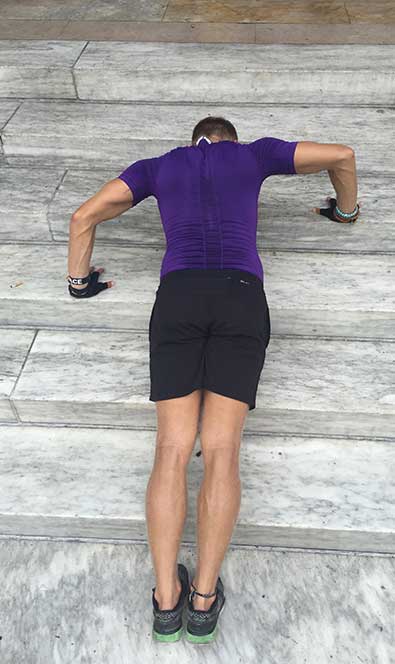
Set-up: At the bottom center of the stairs, face the stairs with your feet together. Place your right hand on a step that is slightly above your chest level, and your left hand slightly below. Lower your chest as you are able toward the stairs.
Execution: Push yourself to the starting position with extended elbows. Lower and repeat twice more. Change hand positions so the left hand starts higher than your chest, and right hand starts lower than your chest, and do three more push-ups. Slowly “crawl” your way to the next step or two up the staircase, walking your feet first and then your hands. Continue for three to five minutes total or until fatigue sets in from plank position.
6. Crisscross Abduction Squats Moving Left
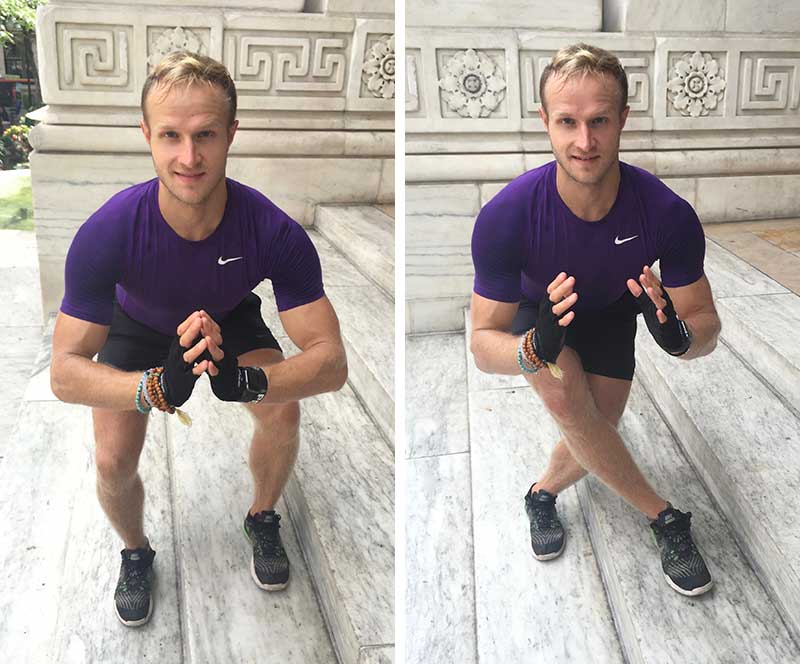
Set-up: At the bottom center of the stairs, face to the right so the left side of your body faces the stairs. Place your left foot on the first or second stair and squat down.
Execution: Stand and abduct the right hip so the right leg lifts to the side. Place the right foot of your lifted leg on the next step, crossing in front of your left foot. Squat down as you contact the stairs. Maintaining the squat, uncross your legs as you place your left foot on the next step. Repeat from the start of the exercise, moving up the stairs.
7. Crisscross Abduction Squats Moving Right
Follow the directions for the previous exercise, but begin facing to the left at the bottom center of the stairs. Repeat everything moving upward on the right side of the body.
The following exercises start at the top of the stairs.
8. Eccentric Triceps Lowering
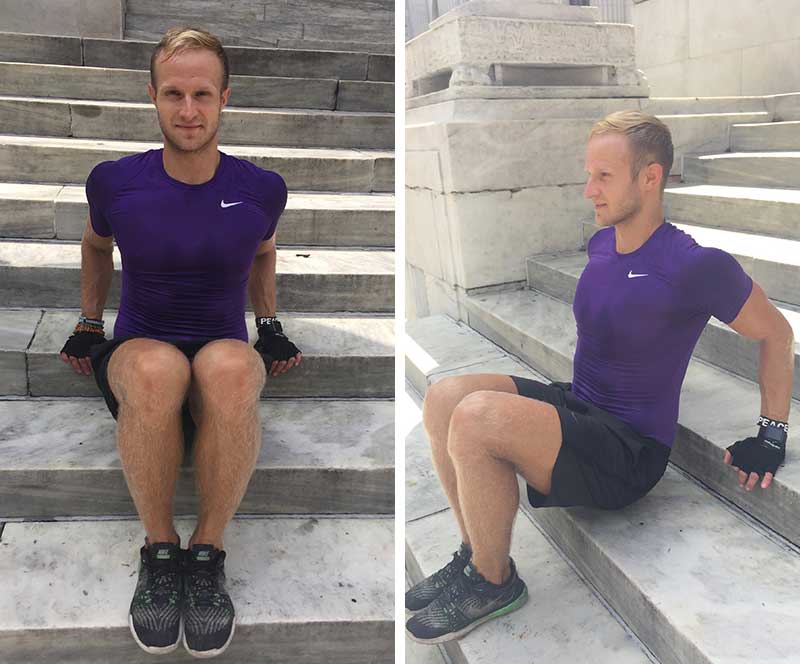
Set-up: Sit at the top of the stairs and place your fingers over the edge of the first step where you’re sitting.
Execution: Using your triceps, slowly lower yourself toward the next step, flexing your elbows and moving your glutes toward a contact point with the floor. As a progression, keep one foot off of the floor during the lowering. Repeat for three to five minutes or until you reach the bottom of the stairs. If your stairs are short, stand, walk to the top and repeat.
Flexibility and Balance
9. Long Lever Side Plank Balance
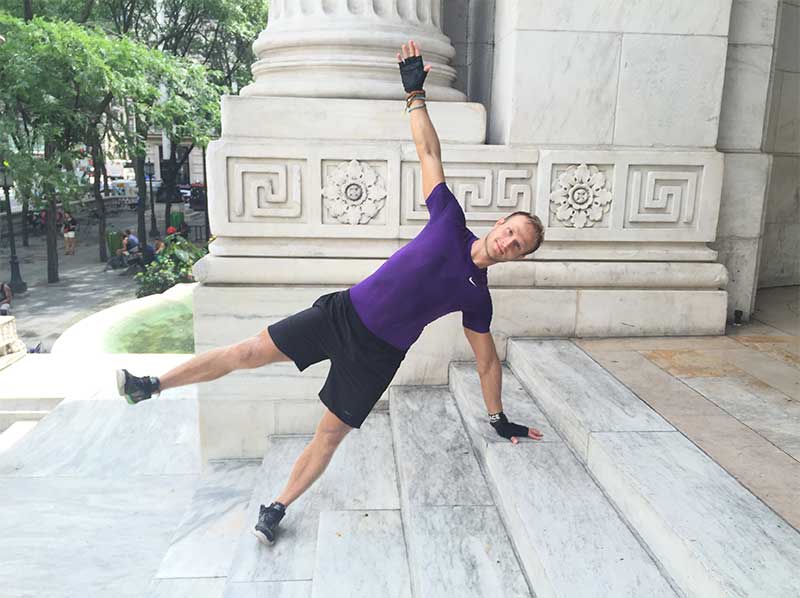
Set-up: From the bottom center of the stairs, face the right side with feet together
Execution: Place your left hand, fingers spread, on to a stair that is approximately opposite your hip. Lean to the left, keeping the left shoulder abducted, and abduct the right shoulder, forming a letter “T” with the entire body. Your feet will be stacked on the floor, left side of the left foot against the floor. As a progression, abduct the right hip. Try to hold the position for 30-60 seconds, and repeat facing the left side.
10. Twisting Hip and Leg Stretch
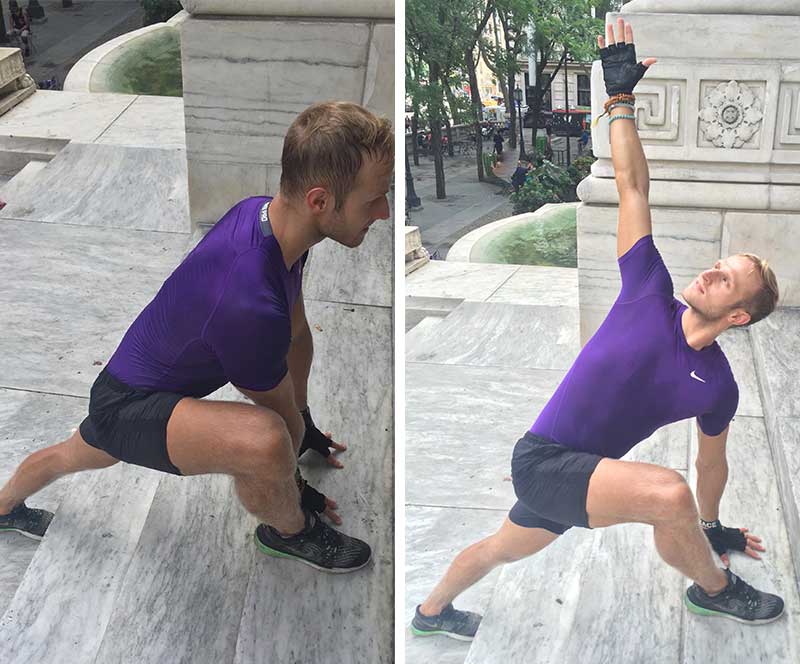
Set-up: From the bottom center of the stairs, facing the stairs
Execution: Place your hands shoulder-width apart on the step across from your chest or just below; keep the elbows extended. Place your right foot to the right of your right hand, gently stretching the right glute. Gently extend the spine, pushing the hips toward the stairs, opening the left hip area. As a progression, rotate to the right, abducting the right shoulder perpendicular to your spine. Hold for 30-60 seconds and repeat facing the right side.




 by
by 






 by
by